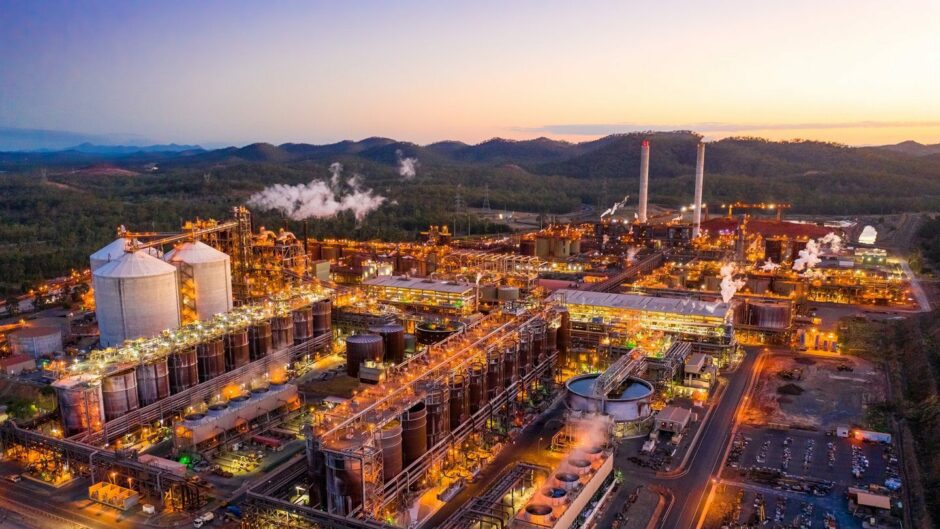
Rio Tinto and Sumitomo Corp. have taken the investment decision on a hydrogen project in Gladstone, with JGC to handle the construction.
Summit Hydrogen Gladstone awarded the engineering, procurement and construction (EPC) contract for the 2.5 MW plant to JGC. JGC Corp. Oceania signed the contract with Summit, a subsidiary of Sumitomo Corp. It will produce 250 tonnes per year of hydrogen from the 2.5 MW electrolyser.
Construction will start in 2024 and should be in operation by 2025.
It will build the facility at an alumina refinery, owned and operated by Rio Tinto.
JGC said it would reduce CO2 emissions by using hydrogen as an alternative to natural gas in the alumina production process.
Rio Tinto said the first of its kind hydrogen plant was part of a A$111.1 million ($74.3mn) programme. Australia’s government will provide a A$32.1mn ($21.5mn) for the Yarwun Hydrogen Calcination Pilot, it said.
The pilot will use hydrogen in the calcination process, which heats alumina to temperatures of up to 1,000 degrees Celsius. It will involve a retrofit of one of the four calciners to operate with a hydrogen burner.
JGC signed the front-end engineering and design (FEED) contract for the project in January 2021.
The company said the contract was the first EPC project it had won using proton exchange membrane (PEM) electrolysers.
Tackling mining
Rio Tinto Aluminium Pacific Operations managing director Armando Torres said the plant was “an important step in testing whether hydrogen can replace natural gas in Queensland alumina refineries”.
There are plans to scale up production in future. This first step should reduce emissions by about 3,000 tonnes per year. Converting the entire plant would reduce it by 500,000 tpy.
“Demonstrating real-world applications of hydrogen in industrial settings with motivated partners is essential to reducing carbon emissions and working toward our company’s vision of achieving carbon neutrality by 2050,” said Sumitomo energy innovation initiative director Seiji Kitajima.
“Through this demonstration, Sumitomo Corporation aims to venture into the commercialisation project to contribute to Rio Tinto’s decarbonisation.”
The Australian Renewable Energy Agency (ARENA) CEO Darren Miller said the pilot “looks to prove a promising technology for decarbonising one of our most emissions intensive industries”.
Success at Yarwun could be a “game changer for Australian alumina production, paving the way for deployment across the industry, and underscoring the importance of low-cost green hydrogen to decarbonise our largest industrial emitters. ARENA will continue to support projects at this scale as we develop other larger programs, such as Hydrogen Headstart.”
